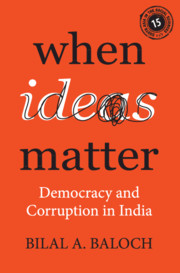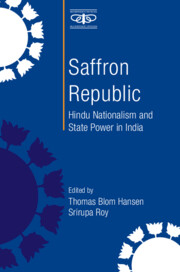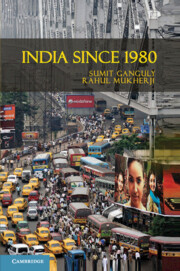When Ideas Matter
Comparativist scholarship conventionally gives unbridled primacy to external, material interests–chiefly votes and rents–as proximately shaping political behaviour. These logics tend to explicate elite decision-making around elections and pork barrel politics but fall short in explaining political conduct during credibility crises, such as democratic governments facing anti-corruption movements. In these instances, Baloch shows, elite ideas, for example concepts of the nation or technical diagnoses of socioeconomic development, dominate policymaking. Scholars leverage these arguments in the fields of international relations, American politics, and the political economy of development. But an account of ideas activating or constraining executive action in developing democracies, where material pressures are high, is found wanting. Resting on fresh archival research and over 120 original elite interviews, When Ideas Matter traces where ideas come from, how they are chosen, and when they are most salient for explaining political behaviour in India and similar contexts.
- Focuses on ideas to explain checks and balances on government in contexts where material pressures are high
- Utilizes over 4000 government records from three national archives as well as 120 elite interviews for a rich and unique data set
- Develops and deploys an innovative constructivist approach using philosophy of science, social psychology, sociology, and political theory to study decision-making
Reviews & endorsements
'In this detailed account of government responses to credibility crises, Baloch sheds new light on a key element of decision-making, the cohesion of elite ideas. Focusing on corruption allegations in India, he shows how leaders' perceptions of the status and appropriate role of the state can have important implications for the ability of those elites to respond to external critiques. Through the use of elite interview and archival research-based process tracing on two key moments in India's contemporary political history, Baloch offers a compelling perspective that goes well beyond theories of material interests.' Jennifer Bussell, University of California, Berkeley, author of Corruption and Reform in India: Public Services in the Digital Age
'When Ideas Matter is a deeply researched and engagingly written book. It addresses an unusual but vital question: How do the ideas of elites actually shape politics and policy and their ability to negotiate the contradictions of society? It is also a wonderful contribution to contemporary history, by smartly putting into comparative perspective the anti-corruption movement against Indira Gandhi’s Congress with the movement against UPA-II. In doing so Bilal Baloch sheds new light on how ideas work in politics, the nature of political elites, the shape of party structures and the future of populism.' Pratap Bhanu Mehta, co-editor of Rethinking Public Institutions in India
'Bilal Baloch makes a powerful constructivist case for the importance of ideas in explaining key outcomes and crises in post-independence Indian history, from the secular nationalist era of the 1970s, to the Hindu Nationalist present.' Steven Wilkinson, Yale University, author of Votes and Violence: Electoral Competition and Ethnic Riots in India
Product details
August 2023Paperback
9781009413022
351 pages
230 × 150 × 20 mm
0.526kg
Available
Table of Contents
- Acknowledgements
- Abbreviations
- 1. Introduction
- 2. A constructivist approach to political behavior in India
- 3. The Emergency and the Jayaprakash Narayan Movement
- 4. India under Gandhi: Populism and partisans
- 5. Checks and balances and the India against Corruption Movement
- 6. United Progressive Alliance: Technocrats and transformations
- 7. The politics of ideas in India and developing democracies
- Appendices
- References
- Index.







